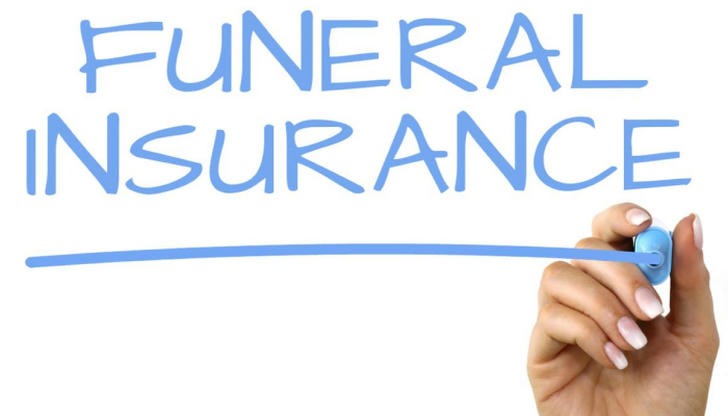Free funeral insurance: the last leg of social security
Death is a fact that everyone must face, and funeral is an important part of this process. However, for many people, funeral expenses are often a heavy financial burden. Especially for low-income families or families that have suffered misfortune, the high funeral expenses may put them under tremendous financial pressure in addition to grief. In order to alleviate this predicament, many countries and regions have introduced free funeral insurance, a social welfare policy, which provides necessary financial support for poor families and ensures that every family can provide basic funeral arrangements for their deceased loved ones.

This article will explore in detail the significance, development status, challenges and future prospects of free funeral insurance to help readers fully understand this important social security measure.
What is free funeral insurance?
Free funeral insurance refers to a form of funeral insurance provided by the government or social welfare institutions that exempts the beneficiary from paying premiums. Generally, this type of insurance is designed to provide funeral cost protection for economically disadvantaged groups, ensuring that they can receive basic funeral services after the death of their loved ones, and not be unable to hold a funeral for their loved ones due to financial difficulties. The expenses covered by free funeral insurance usually include necessary expenses such as corpse handling, funeral venues, and cemetery placement. Unlike traditional commercial funeral insurance, the purpose of free funeral insurance is to provide minimum protection and help the most vulnerable groups in society reduce financial pressure.

Who can benefit?
he beneficiaries of free funeral insurance are usually families with financial difficulties, especially those who live below the poverty line or cannot afford funeral expenses. The social welfare system in some countries regards free funeral insurance as part of social security to help the unemployed, homeless, elderly, disabled and other groups to smoothly handle funeral affairs, so that funerals will not be held due to economic reasons.

The importance of free funeral insurance
1. Relieve the economic pressure of families who have lost their loved ones
The psychological blow brought by the death of a loved one is huge, and the pressure of funeral expenses is often an "aggravator" of grief. For low-income families, the cost of a funeral may occupy their income for several months or even a year. In this case, free funeral insurance has become their "lifeline". It ensures that when a family loses a loved one, they do not have to worry about how to pay for the funeral, but can concentrate on mourning and handling the aftermath.
Because many families cannot afford the funeral expenses, they often face the choice of giving up holding a funeral, choosing a simple funeral form, or even in extreme cases, choosing to abandon the body on the street. Free funeral insurance effectively avoids these situations, and it ensures that everyone can enjoy a decent farewell.
2. Ensure that every deceased person can get basic dignity
For many people, funeral is not only an economic issue, but also a manifestation of culture and emotion. Different cultures and religions have different requirements and rituals for funerals, which represent respect and commemoration for the deceased. However, the high cost of funerals often forces some families to abandon these traditions or even choose not to hold funerals.
Free funeral insurance provides a basic guarantee for families, ensuring that the deceased can get a basic funeral arrangement and maintain a certain ritual dignity. This is especially important for many cultural backgrounds where funerals are regarded as vital family events.
3. Promote social equity and social responsibility
Free funeral insurance is a manifestation of social responsibility, especially in societies with more serious economic inequality. It provides basic protection for low-income families through the power of government and non-profit organizations, ensuring that everyone can get social help when they lose their loved ones. This kind of protection is not only material, but also emotional comfort, reducing the social pressure brought about by social injustice and poverty.

The current status of free funeral insurance implementation
1. Funeral Payment in the UK
In the UK, the government provides funeral expenses support to eligible low-income families through a policy called Funeral Payment. The main purpose of this policy is to help people who are unemployed, low-income or receiving social welfare to reduce the pressure of funeral expenses. Funeral Payment covers basic funeral expenses, including funeral venues, transportation of remains, cremation or burial costs, etc. However, funeral payment does not cover all expenses, such as flower decorations and luxurious funeral forms, so beneficiaries still need to pay part of the expenses out of their own pockets.
The funeral payment policy in the UK provides a basic guarantee to help those who cannot afford the high funeral expenses to smoothly handle funeral affairs and reduce the family's financial distress.
2. Charitable funeral services in the United States
In the United States, although there is no nationwide free funeral insurance, many charities and non-profit organizations provide free funeral services, especially for low-income and homeless people. These organizations pay for funeral expenses through fundraising, volunteer services and government funding, and provide basic funeral services to those in need.
For example, the "Last Dedication Foundation" is a charity in the United States that specializes in providing funeral assistance to poor families. The organization provides free funeral services to poor families who have lost their loved ones through donations and social funding support. The existence of these institutions demonstrates the society's care for vulnerable groups and alleviates the pressure on low-income families to a great extent.
3. Social funeral insurance in Germany
Germany's social welfare system is very complete, and the government provides a funeral insurance plan for low-income groups. This insurance plan does not require the insured to pay insurance premiums, but the social welfare agency provides funeral expenses support based on personal circumstances. Although funeral insurance does not cover all funeral needs, it covers most basic funeral services, such as cremation or burial costs, body transportation, etc., to ensure that every family who has lost a loved one can get basic funeral services.

Challenges faced by free funeral insurance
1. Shortage of funds and resources
Although free funeral insurance has made some progress in many countries and regions, the governments of many countries and regions often face financial pressure because it requires a lot of financial support. Therefore, the source of funds for providing free funeral insurance has become a key issue. In some countries with poor economic conditions, the government may not be able to provide sufficient funds to ensure the implementation of this policy, resulting in limited coverage and quality of funeral insurance.
2. Limitations of service coverage
Free funeral insurance usually only covers basic funeral expenses, which is difficult to meet the needs of some families for personalized funeral services. For example, some families may want to arrange funerals according to religious customs or cultural traditions, but free funeral insurance often cannot provide customized services. This makes some families feel dissatisfied or lose dignity even if they enjoy basic protection.
3. Social awareness and publicity issues
Although free funeral insurance is of great significance, many low-income families are not aware of this policy and have never applied for relevant assistance. This may be due to lack of publicity or people's lack of understanding of funeral insurance. Therefore, improving social awareness and strengthening publicity are important directions for future development. The government and non-profit organizations should increase publicity of this policy to ensure that more families in need can obtain this protection.

Future prospects of free funeral insurance
1. Expansion of coverage
With the continuous development and improvement of the social security system, the coverage of free funeral insurance may gradually expand, especially in poor areas and developing countries. With the strengthening of cooperation between the government and non-profit organizations, free funeral insurance is expected to cover a wider range of people, ensuring that every family in need can enjoy this benefit.
2. Innovative funding models
In order to ensure the sustainable development of free funeral insurance, the government and social welfare institutions can explore diversified sources of funds. For example, funds can be raised through social donations, volunteer services, cooperation with insurance companies and other means to provide protection for funeral insurance. Social enterprises, charitable organizations and individual donations may also become important sources of funding support for this policy.
3. Improve service quality
In the future, free funeral insurance may not only be limited to basic funeral services, but may also provide more personalized and traditional services. For example, customized funeral arrangements can be provided for families with different cultural and religious backgrounds to ensure that the funeral meets both social welfare standards and the cultural needs of the family.
Conclusion
As an important part of the social security system, free funeral insurance provides necessary financial assistance and ensures that poor families can receive basic funeral services when their loved ones pass away. Although its implementation faces challenges such as funding and coverage, with the improvement of the social welfare system and the enhancement of social responsibility, free funeral insurance is expected to benefit more families and ensure that more people can get help and support in the plight of losing their loved ones.
